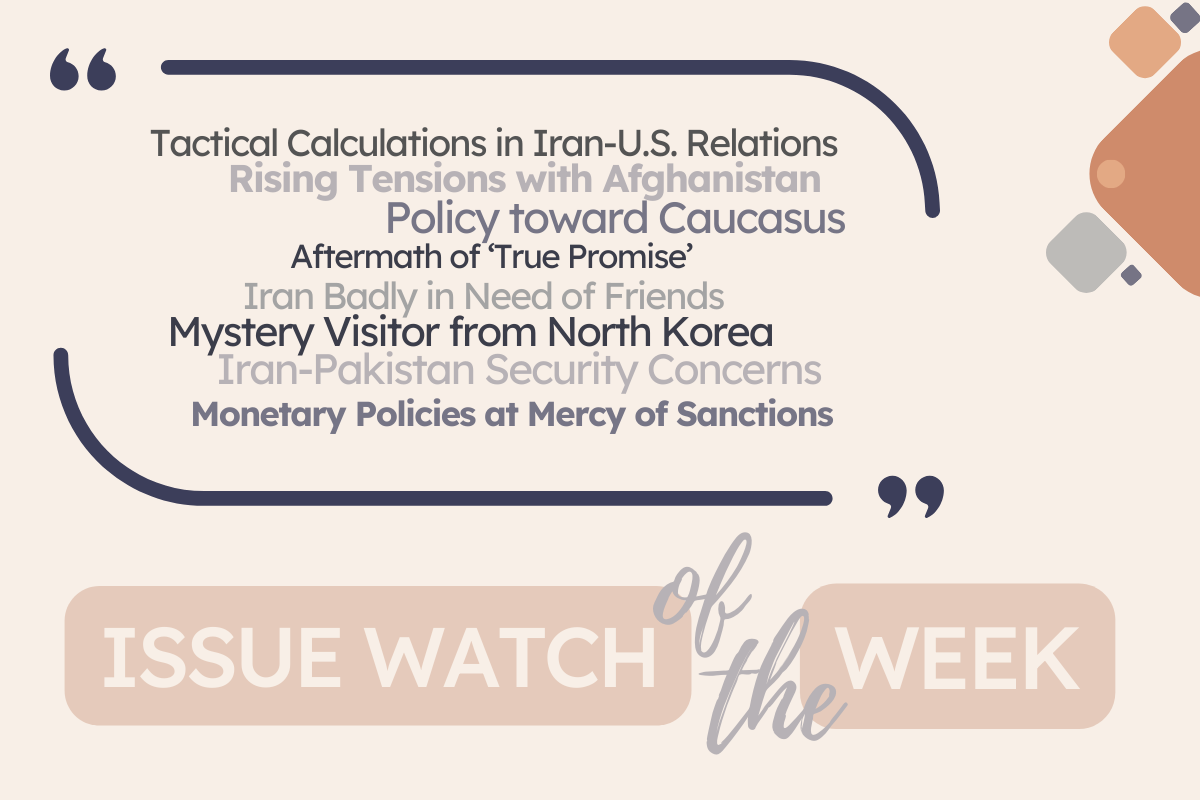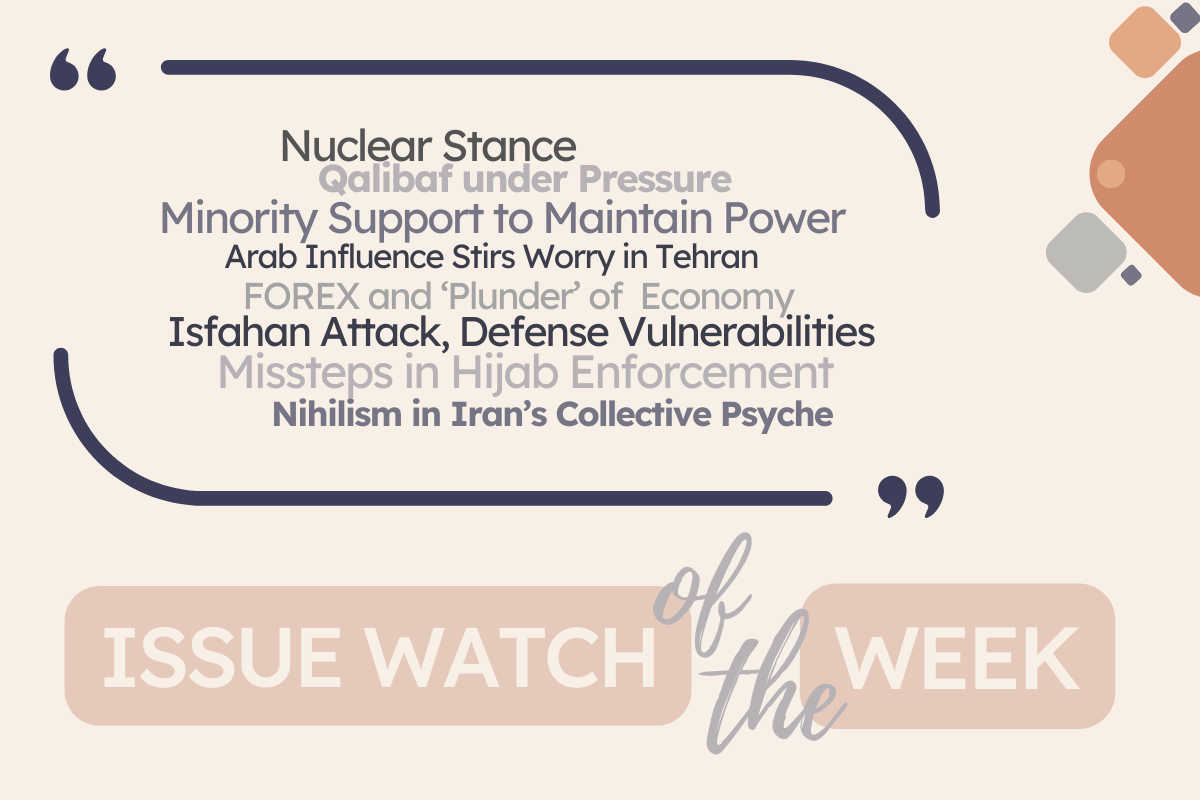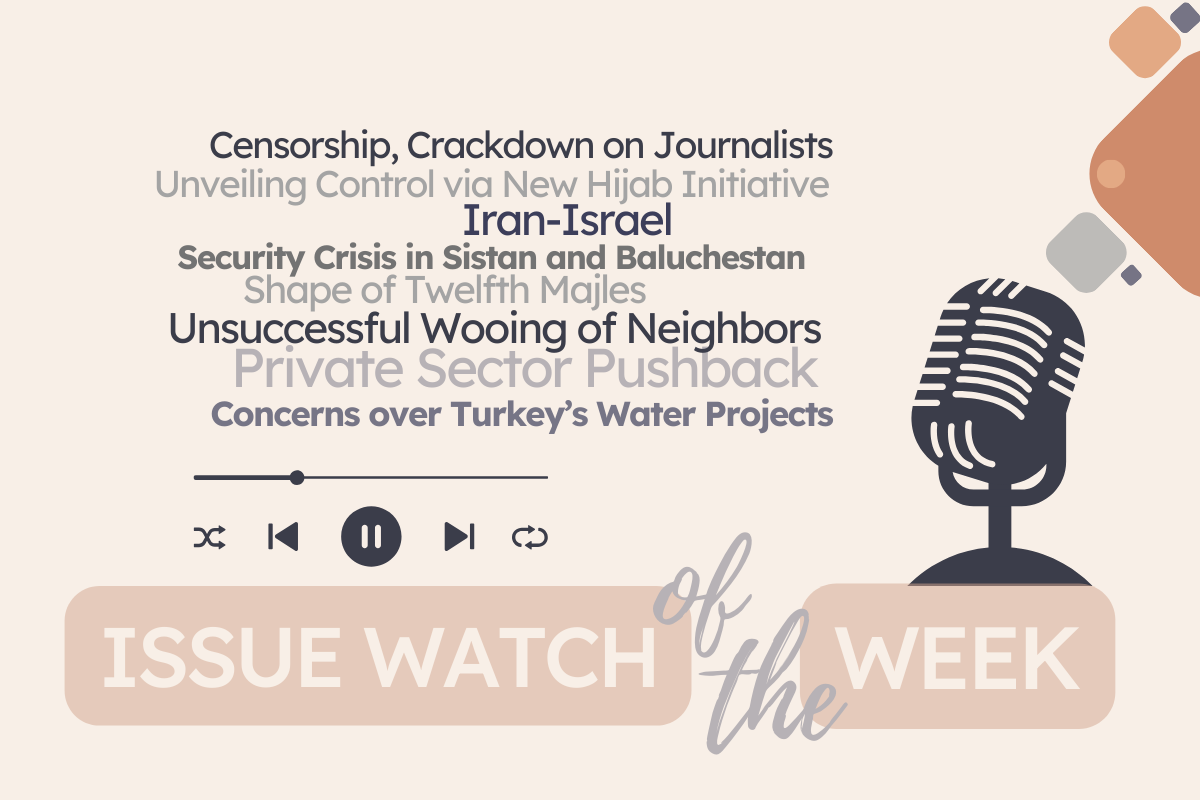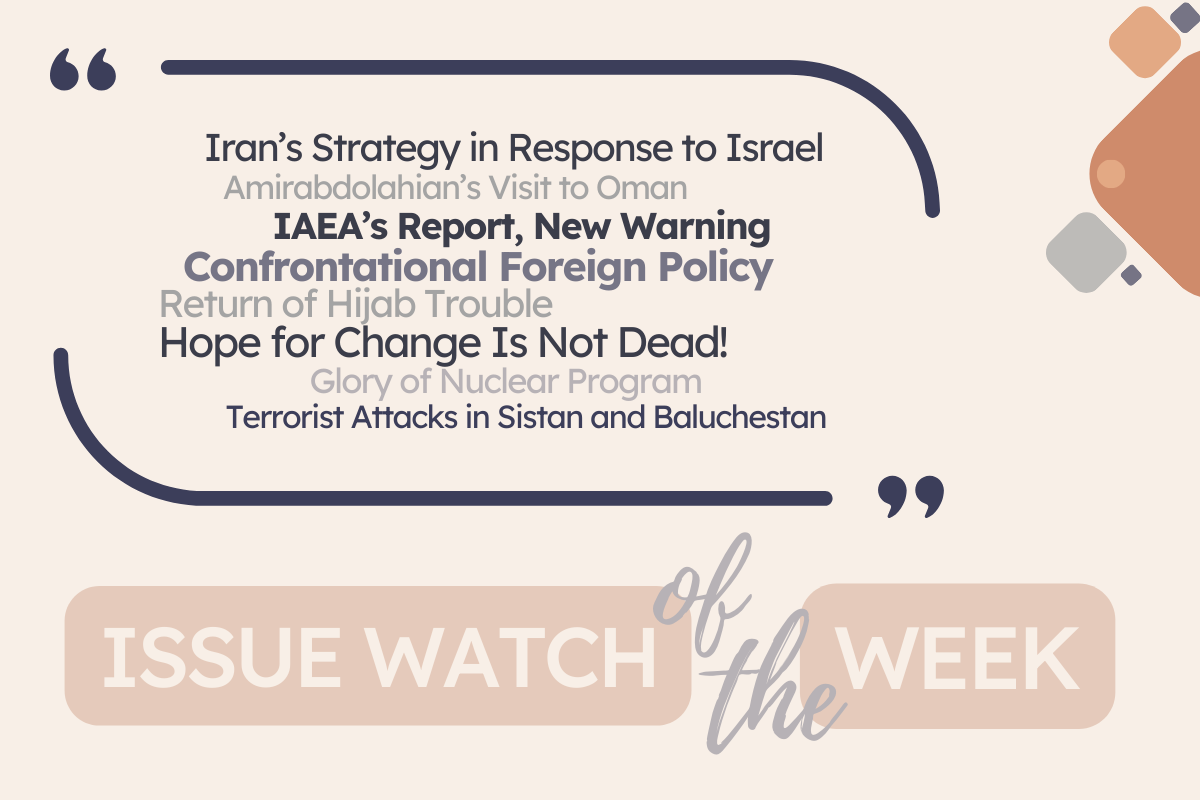Tactical Calculations in Iran-U.S. Relations:
According to reports from reformist media and official statements, there are indications that the Ra’isi administration is subtly moving towards resuming nuclear negotiations with the U.S. Factors such as the looming deadline for the JCPoA’s snapback mechanism, which could automatically reinstate UN sanctions, along with economic considerations and the uncertain prospects of President Biden’s re-election, appear to be influencing Iran’s strategy. From the perspective of the U.S. and its European allies, the escalating tensions between Iran and Israel, along with worries about Iran’s potential development of a nuclear weapon, are seen as key drivers motivating Washington’s desire to return to the negotiating table.
Rising Tensions with Afghanistan:
Tensions over water rights are expected to intensify as Afghanistan initiates a new phase of constructing a dam upstream of the Iran-Turkmenistan Friendship Dam. This project threatens to further restrict water availability in the Razavi Khorasan province of northeastern Iran. Afghanistan’s construction of two other dams has already reduced the water allocation for the Friendship Dam from the Harirud River. The Iranian ministry of foreign affairs faces criticism for its perceived passivity in dealing with the Taliban. Further exacerbating the situation are disputes over water rights from the Helmand River, which affect water availability in Sistan and Baluchestan, and the Taliban’s recent temporary detention of Iranian border patrol guards, indicating an escalating trend of tensions between the two countries.
Reassessment of Policy toward Caucasus:
Is Iran’s foreign policy spread too thin? Experts warn that preoccupations with Israel and Gaza as well as relations with the West are adversely affecting Iran’s other interests in the region. Directly or not, such international crises are threatening Iran’s economic, strategic, and cultural interests in the Caucasus. Experts suggest Iran should embrace innovative strategies to sustain its influence. Cultural and religious bodies in Tehran, Qom, and elsewhere must reassess and reevaluate their perspectives on South Caucasus dynamics, they say, and enhance bilateral exchanges and cooperation between Iranian and Armenian religious institutions. Additionally, bolstering the Hoseiniyyun forces and supporting the anti-Israeli Armenian Church could play crucial roles in advancing Shiite discourse in Baku and safeguarding Iran’s interests in Armenia.
Contending Perspectives on Aftermath of ‘True Promise’:
While the IRGC and hardliners in general see a positive side to Iran’s missile attack on Israel, others view such capabilities as a prod for the creation of a new coalition against Iran. Bragging about the “unprecedented display of power by the Islamic Republic,” IRGC officers have claimed it took ten countries to help Israel defend against them, thus showing Iran’s power. Some argue, however, that events have catalyzed the formation of an Arab coalition against Iran. Regional dynamics among Arab countries may not necessarily coalesce into a direct anti-Iranian coalition, but there are discernible indications that Arab states like Saudi Arabia seek to recalibrate and normalize relations with both Tehran and Tel Aviv to achieve a more nuanced balance. U.S. Secretary of State Antony Blinken seems to be proposing a unified air defense mechanism involving six regional Arab nations—possibly a response to Iran’s attack on Israel.
Increased Budget Allocations Spotlight Government Priorities:
The budget that the Plan and Budget Organization has released for the current Persian year, slated for Majles review next week, increases allocations for state-sponsored media and religious entities, as well as underfunded areas such as investment in less developed regions. The beneficiaries are largely religious and cultural entities as well as individuals and factions whose continued loyalty is important to the Nezam. In addition to the general budget, state-owned companies, banks, and governmental for-profit institutions are required to allocate one percent of their expenses to the field of religion. Despite this requirement, however, none of these entities made any contributions to the religious sector in the first nine months of 1402.
Iran Badly in Need of Friends:
In a predominantly Muslim region of the world, the theocratic Islamic Republic of Iran is largely friendless, with the pace of loss of friends and influence having picked up lately amid nearly daily reminders of distrust and even outright contempt from neighbors to the east and west. Iran was locked in a tussle with Saudi Arabia and Kuwait over ownership of the Arash/al-Durrah gas field, but now Jordan has joined the fray on Kuwait’s side, issuing a joint declaration with the Gulf state to that effect. Iran’s options for a response to the new development are limited, leading to a statement from the spokesman of the ministry of foreign affairs re-asserting Iran’s claim and nothing more. Hardliners have been furious with the Hashemite kingdom for helping Israel during Iran’s Operation True Promise. Perhaps they should save some of that outrage for Turkey, with an Islamist politician alleging that his country was part of the coalition that helped track and knock down Iranian missiles targeting Israel.
Mystery Visitor from North Korea:
Iranian news outlets, including the administration’s official media, have reported—based on information from North Korea’s state news agency—that a delegation led by North Korea’s minister of international trade has commenced a trip to Iran. The timing of this visit is particularly noteworthy, occurring amid escalating tensions in the Middle East and following warnings from South Korea’s intelligence agency about potential cooperation between Iran and North Korea against Israel. Moreover, a shared animosity towards the United States may form a basis for potential military collaborations. Recently, the United States introduced new sanctions against Iran in response to its direct military actions against Israel. An Iranian analyst posits that as the United States intensifies pressure on China, Iran, and North Korea, the potential for their enhanced relations with Russia correspondingly increases.
Iran-Pakistan Security Concerns:
Despite the optimistic official narrative surrounding Iran-Pakistan relations following President Ra’isi’s visit to Islamabad, significant security concerns continue to challenge the relationship between the two neighbors. Within Pakistan, demands from the Baluch people are met with violence from the government, fueling several separatist movements that have intensified following border incidents with Iran. Some analysts believe that the rivalries between Iran and Saudi Arabia, with whom Pakistan maintains good relations, have prompted Riyadh to support the emergence of militia groups in Sistan and Baluchestan as part of its retaliation against Iran’s support for the Axis of Resistance. On the Iranian side, government pressure on Baluch clerics and leaders further undermines security along the eastern border. Nonetheless, President Ra’isi’s recent visit to Pakistan suggests a mutual interest in overcoming past tensions—including the earlier exchange of fire in 2024—and moving towards cooperation.
Economic Paradox of Nuclear Energy Ambitions:
Iran’s nuclear chief has committed to increasing the number of nuclear power plants, noting that the Bushehr Nuclear Power Plant has produced enough energy to cover its construction costs four times over. However, recently leaked documents from the Majles raise doubts about the plant’s profitability. Reportedly, the plant operates only nine months per year, undergoing maintenance for the remaining three months, and during its operational period its output is equivalent to that of a small gas power plant. Given the substantial expenses and the extended timeline required by Russia to construct the Bushehr nuclear plant, many critics view the project as an inefficient use of resources, accusing Russia of exploiting Iran by unnecessarily prolonging the construction process. Nonetheless, it appears that Russia remains the only viable partner for constructing additional nuclear power facilities in Iran.
Monetary Policies at Mercy of Sanctions:
Advocacy by the Tehran Chamber of Commerce for a single rate of foreign exchange shows how sanctions are a determining factor in Iran’s monetary system. Many economists have been critical of the current policy, arguing that multiple exchange rates serve as a major obstacle to international trade. In recent days, the disparity between the market rate and NIMA, set by the Central Bank of Iran (CBI), has widened by more than 60 percent. This has sowed confusion, instability, and unpredictability, aside from failing to act as a brake on inflation. CBI Governor Mohammadreza Farzin adamantly sticks by the status quo as an unavoidable remedy for the “excitable” currency market, arguing that uncertainty and sanctions affect macroeconomic factors. The Beirut-based and Iran-aligned al-Mayadin network reports that over the last three months the CBI has boosted its reserves of gold and other precious metals to unprecedented levels in anticipation of new sanctions, showing how great their effects are on Iran’s sick economy.







